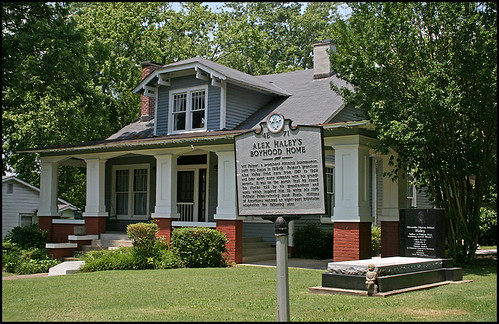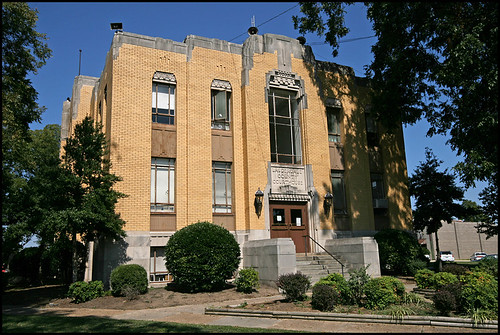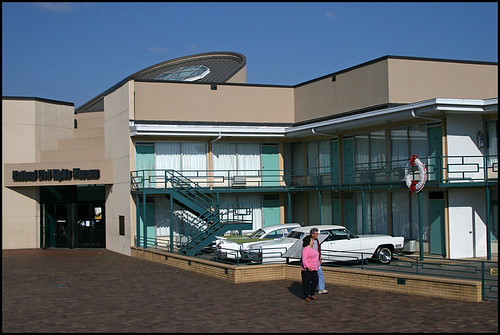Historic Quality encompasses legacies of the past that are distinctly associated with physical elements of the landscape, whether natural or manmade, that are of such historic significance that they educate the viewer and stir an appreciation for the past. The historic elements reflect the actions of people and may include buildings, settlement patterns, and other examples of human activity. Historic features can be inventoried, mapped and interpreted. They possess integrity of location, design, setting, material, workmanship, feeling and association.
Listed from North to South, our 15 selected assets:
1) Jones Chapel Church of Christ Cemetery, Great River Road Tennessee, north of Tiptonville, Lake County, Tennessee

© Dr. Carroll Van West
This National Register-eligible cemetery is the resting place for the mass burial of 75 Confederates from the Island No. 10 battle during the Civil War, the oldest identified marker dates to 1838.
2) Island No. 10 Battlefield Memorial, Great River Road Tennessee, north of Tiptonville, Lake County, Tennessee

© Amie Vanderford
This state-developed marker for the Battle of Island No. 10 interprets this pivotal
Civil War battle for control of the Mississippi River and was erected c. 1960 as part of the state's Civil War centennial.
3) Reelfoot Lake, White's Landing Boardwalk, Great River Road Tennessee, Lake County, Tennessee

© Amie Vanderford
This lone fisherman is an example of the fishing activity that takes place in the
midst of beautiful old cypress trees in this natural fish hatchery lake created as a result of the New Madrid earthquakes which occurred in the early 1800s.
4) Heloise Landing and the Mississippi River, Great River Road Tennessee, Dyer County, Tennessee

© Amie Vanderford
This access point to the Mississippi River port was once a prominent stop for
agricultural trade during the time between the Civil War and World War II eras.
5) Alex Haley’s Boyhood Home, Great River Road Tennessee, Henning, Tennessee

© Amie Vanderford
This one-and-one-half story weatherboard bungalow where Alex Haley lived from
1921 to 1929, was the house of Alex Haley's grandfather, Will Palmer and his time there served as inspiration for his popular book Roots: The Saga of an American Family (1976).
6) Fort Pillow State Historic Park, Great River Road Tennessee, Lauderdale County,
Tennessee

© Amie Vanderford
Civil War re-enactments are periodically held at this historic site to remember the
events that occurred at Ft. Pillow during the Civil War.
7) Lauderdale County Courthouse Ripley, Great River Road Tennessee, Lauderdale County, Tennessee

© Amie Vanderford
The Lauderdale County Courthouse has a unique design among Marr and Holman's Public Works Administration (PWA) courthouses due to its use of buff-colored glazed brick as the main exterior material and its cruciform plan.
8) Tipton County Courthouse, Covington, Great River Road Tennessee, Tipton County, Tennessee

© Amie Vanderford
This late nineteenth century Victorian-styled Courthouse and gazebo in Covington serves as an anchor to surrounding historic commercial and public buildings ranging in age from the 1870s to the 1970s.
9) Canaan Baptist Church, Covington, Great River Road Tennessee, Tipton County, Tennessee

© Amie Vanderford
Built from 1916 to 1917, the Canaan Baptist Church has played a significant role
in the social history, religious history, and the ethnic heritage of African Americans in Covington and Tipton County.
10) Randolph, Great River Road Tennessee, Tipton County, Tennessee

© Amie Vanderford
Randolph was founded in 1823 and undoubtedly occupied the best potential site available for water-borne commerce, due its direct access to the Mississippi River, and as such provided an excellent harbor for steam and flatboats at all stages of the river.
11) National Civil Rights Museum, Memphis, Great River Road Tennessee, Shelby County, Tennessee

© Amie Vanderford
As showcased at the National Civil Rights Museum in Memphis, the struggle for civil rights continues to play a major and historic role in our society. Dr. Martin Luther King, Jr. was cut down by an assassin's bullet in 1968 at this shrine to his life's work and quest to secure the rights of equality, liberty and justice for all people in the world.
12) Mud Island River Park & Museum, Memphis, Great River Road Tennessee, Shelby County, Tennessee

© Mud Island River Park & Museum
The historic Mud Island River Park and Museum is a unique 52-acre recreational,
educational and entertainment facility dedicated to telling the story of the Mighty Mississippi River and its people. The River Walk on Mud Island is a 5-block long replica of the lower Mississippi river, from Cairo, IL, to New Orleans, LA.
13) Beale Street, Memphis, Great River Road Tennessee, Shelby County, Tennessee

© David Richtmyre
Beale Street, while primarily known for being the home of the Blues, is also steeped in African American history. In the late 1870's Memphis was fighting a Yellow Fever epidemic and lost its city charter in 1879. At this time, Robert Church purchased land around Beale Street which eventually lead to his becoming the first black millionaire from the south. In the early 1900s, Beale Street was filled with clubs, restaurants and shops, many of them owned by African-Americans. In 1889, NAACP co-founder Ida B. Wells was a co-owner and editor of an anti-segregationist paper called Free Speech based on Beale. Beale Street Baptist Church, Tennessee's oldest surviving African American Church edifice built in 1864, was also important in the early civil rights movement in Memphis.
14) C. H. Nash Museum & Chucalissa Archaeological site, Memphis, Great River Road Tennessee, Shelby County, Tennessee

© Amie Vanderford
Operated by the University of Memphis, the Chucalissa site and museum serves as a gateway into understanding the science of archaeology and the interpretation of Native American history in the mid-south.
15) National Ornamental Metal Museum, Memphis, Great River Road Tennessee, Shelby County, Tennessee

© Amie Vanderford
The National Ornamental Metal Museum is located on the grounds of a former U.S. Marine Hospital on the Memphis bluff over looking the Mississippi River. This bluff was originally the site of Native American Indian mounds, then in the 1600s was the site of a French fort, and eventually the site became Ft. Pickering during the Civil War.




